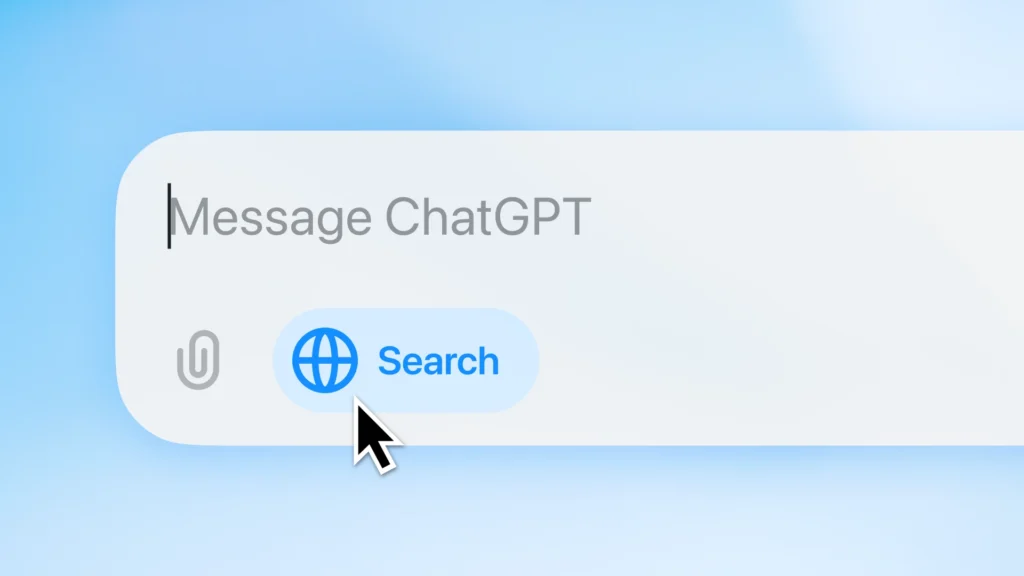Imagine asking ChatGPT a question about the latest technology, sports, or world events and receiving a detailed answer complete with web sources, as if you had a mini search engine built right into your chat. This is exactly what OpenAI’s new ChatGPT search feature brings to the table. Seamlessly merging AI capabilities with real-time web browsing, this AI search engine alternative challenges traditional platforms like Google and Perplexity AI. But ChatGPT’s search tool is not just another search bar—it’s an entirely new approach to how we access information online.

A Step Beyond Traditional AI: ChatGPT’s Real-Time Web Browsing
OpenAI initially rolled out its SearchGPT prototype, a conversational tool that combined ChatGPT’s capabilities with live internet access. The feedback from this prototype informed OpenAI’s refined ChatGPT search tool, now embedded for paid subscribers on Plus and Team plans. This upgrade offers a seamless experience, allowing users to refine queries in follow-up questions without restarting their search. Users can click a “Sources” button to view citations, making this an ideal **AI search tool** for accurate, real-time responses—a potential game changer for users wanting conversational AI search.
From Prototype to Power Player: ChatGPT’s Place in AI Search
The ChatGPT search feature is designed to be a foundational tool that enhances ChatGPT’s capabilities. Not only does it respond to questions with AI-powered insights, but it also searches past conversations for easy reference. This is especially valuable for professionals who frequently return to ChatGPT for ongoing projects, enabling them to find details without scrolling through chat histories.
The feature is powered by the advanced GPT-4o model, which uses synthetic data for enhanced accuracy. This refinement sets the stage for OpenAI’s next-generation model, Orion, expected to bring even greater depth to AI search and information retrieval.
How Does ChatGPT’s New Search Feature Compare to Perplexity AI?
As ChatGPT ventures into conversational AI search, comparisons with Perplexity AI are inevitable. Perplexity, known for its concise answers with clear citations, offers a more traditional Q&A style compared to ChatGPT’s interactive approach. Here’s how they differ:

1. Response Style:
- ChatGPT: Answers follow a conversational flow, enabling users to dive deeper with follow-up questions. Users can view source links to verify information, enhancing transparency.
- Perplexity AI: Known for its focused, concise answers with upfront citations, Perplexity is ideal for quick, factual answers without the conversational depth that ChatGPT’s search tool provides.
2. Source Transparency:
- ChatGPT: The “Sources” button lists web origins, giving users confidence in the quality and accuracy of information.
- Perplexity AI: It has long prioritized source transparency, listing citations directly alongside answers for easy verification, which is especially helpful for quick searches.
3. Who’s It Best For?
- ChatGPT: Great for users who need detailed, ongoing conversations with follow-up questions, whether for research, project development, or real-time information retrieval.
- Perplexity AI: Best for quick, straightforward answers where a single, concise response with a reliable source is sufficient.
A Challenge to Google’s Search Dominance?
ChatGPT’s search feature could disrupt traditional search engines like Google by providing users with a more conversational way to get answers. Unlike the ranked lists of links offered by Google search, ChatGPT enables users to engage with the information directly, making it an appealing AI search engine alternative.
In addition to factual responses, OpenAI has indicated plans to integrate partnerships with publishers and commerce sites, allowing ChatGPT to recommend products and content, transforming it from an information provider to a comprehensive user assistant.
The Future of AI-Driven Information Retrieval
The ChatGPT search tool is currently available to paid subscribers, with plans to roll out to free users soon. Together with recent updates to voice interactions and the Canvas editor for text and code, OpenAI’s ChatGPT is positioned as a versatile digital assistant for anyone needing accurate, conversational answers on demand.
Final Thoughts
OpenAI’s ChatGPT search feature offers a glimpse into the future of AI-driven search. With capabilities to access, verify, and discuss information through conversational AI search, this tool is set to redefine the way we interact with online knowledge. Whether you’re a student, researcher, or someone curious about the possibilities of AI, ChatGPT as a search engine promises a more engaging way to find and understand information.


